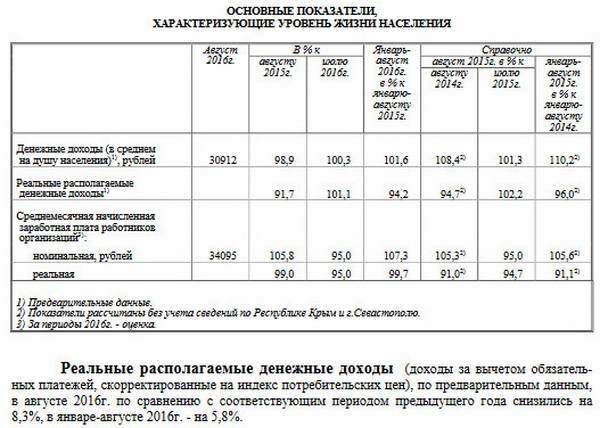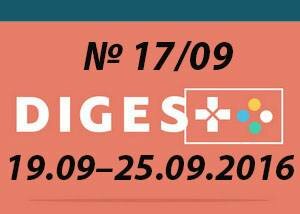
LAST WEEK'S KEY FACTORS AND MAIN TRENDS IN THE DEVELOPMENT OF THE SITUATION AROUND UKRAINE
(September 19-25, 2016)
I. Major-Profile Events in the Development of the Situation around Ukraine
Last week's main political event in the development of the situation around Ukraine was a debate on the “Ukrainian issue” within the framework of the 71st session of the General Assembly (GA) of the United Nations, which showed that the world's attention to our country remains great. Thus, estimates of the consequences of Russia's armed aggression against Ukraine were presented in the speeches by the UN Secretary-General Ban Ki-moon, US President B. Obama, German Chancellor A. Merkel, French President F. Hollande and several other high-level politicians.
In general, they expressed a thought about the danger of the events around Ukraine that pose a threat to the stability of the whole of Europe. The most strident was the speech of US President B. Obama, who directly accused Russia of carrying out neo-imperial policy by intervening in the internal affairs of neighboring countries. In this regard, he pointed out the inevitable negative consequences of such Moscow's actions for the Russian Federation itself, and also recognized the right of the post-Soviet and post-socialist countries to independent choosing their own foreign and domestic policy.
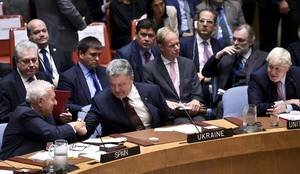 A support to our State was confirmed by the leaders of foreign countries and during President of Ukraine P. Poroshenko's meetings with US President B. Obama, Vice President of the USA G. Biden and US presidential candidate H. Clinton, NATO Secretary General J. Stoltenberg, the Presidents of Turkey, Latvia, Croatia and Argentina, the Japanese Prime Minister, the Emir of Qatar, as well as with other public and political figures. The pro-Russian presidential candidate D. Trump refused to meet with the President of Ukraine.
A support to our State was confirmed by the leaders of foreign countries and during President of Ukraine P. Poroshenko's meetings with US President B. Obama, Vice President of the USA G. Biden and US presidential candidate H. Clinton, NATO Secretary General J. Stoltenberg, the Presidents of Turkey, Latvia, Croatia and Argentina, the Japanese Prime Minister, the Emir of Qatar, as well as with other public and political figures. The pro-Russian presidential candidate D. Trump refused to meet with the President of Ukraine.
In particular: the US government expressed its willingness to give Ukraine 1 billion US dollars loan guarantees; Turkish President R. Erdogan reaffirmed his country's position regarding the non-recognition of Russian parliamentary elections held in the occupied Crimea; NATO Secretary General J. Stoltenberg called for the continuation of sanctions against Russia to its full implementation of the Minsk Agreements; Chairman of the EU Council D. Tusk stressed the EU's firm intention to continue assisting in resolving the conflict in the Donbas.
Another factor influencing the interests of Ukraine became the parliamentary elections in Russia on 18 September 2016, which were also held in the occupied Crimea. Thus, quite expected was the victory of the pro-presidential party “United Russia”, which took more than 75 % of the seats in the State Duma of the Russian Federation. This allows it to carry out any constitutional changes, including on the eve of the presidential elections in the country in 2018 (in particular, in terms of the transfer of the date of the elections to an earlier date — in case of a real prospect of a critical aggravation of the problems in the Russian economy).
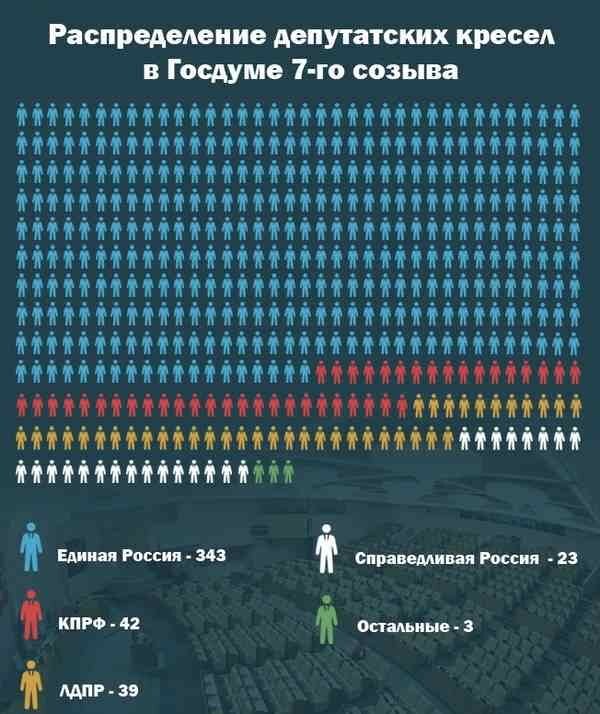 Apart from the “United Russia”, the State Duma includes now three political parties of the so-called “pocket” opposition, namely: the Communist Party — 13.5 % (lost about 6 %), the Liberal Democratic Party — 13.2 % and “Fair Russia” — 6.2 %. None of the representatives of Russia's real opposition did not get into the Parliament (the State Duma).
Apart from the “United Russia”, the State Duma includes now three political parties of the so-called “pocket” opposition, namely: the Communist Party — 13.5 % (lost about 6 %), the Liberal Democratic Party — 13.2 % and “Fair Russia” — 6.2 %. None of the representatives of Russia's real opposition did not get into the Parliament (the State Duma).
According to President of Russia V. Putin, the victory of the “United Russia” was “...the Russian population's conscious choice of stability in the country, as well as the society's response to Western sanctions against the Russian Federation”. However, independent observers point out numerous irregularities during the voting, and the massive use of administrative resources by the Russian authorities. At the same time, on the basis of the election results, they have concluded that V. Putin's regime is turning from the concept of “reasonably sufficient” — to “maximum possible” presence of the “United Russia” in the Parliament. Thus, due to the above-said, Russia has virtually completed the process of creating the system of Putin's absolute power, which is of particular importance to him in the situation of worsening socio-economic situation in the country as a result of sanctions imposed by the West.
Quite a mixed assessment of the elections in Russia was provided by the OSCE, EU, United States and other leading countries of the world. For example, in general, the elections in Russia were found to have been transparent. At the same time, among the negative aspects were mentioned restrictions on fundamental freedoms and political rights of citizens, the authorities' strict control over the media and pressure on civil society. Moreover, most Western countries have condemned Russia's holding the elections in the annexed Crimea and have not recognized their results.
In general, the estimates confirm the existence of dual elements in the policy of the West, which, on the one hand, condemns Moscow's actions in the Crimea, and on the other — avoids excessive complication of relations with Russia.
II. Russia's Armed Aggression against Ukraine
2.1. The East of Ukraine (The ATO Zone)
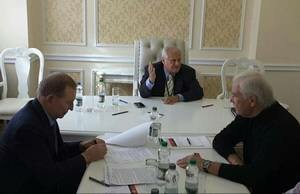 The main event in the process of the political settlement of the conflict in the East of Ukraine was the Tripartite Contact Group's framework agreement in Minsk on September 21, 2016, which provides for the withdrawal of forces and means of the parties at three sections of the front line in case of full truce for seven days. Implementation of this agreement will also allow to hold the next meeting in the “Normandy” format. Currently, the Federal Chancellor of Germany A. Merkel and French President F. Hollande have been preparing such a meeting.
The main event in the process of the political settlement of the conflict in the East of Ukraine was the Tripartite Contact Group's framework agreement in Minsk on September 21, 2016, which provides for the withdrawal of forces and means of the parties at three sections of the front line in case of full truce for seven days. Implementation of this agreement will also allow to hold the next meeting in the “Normandy” format. Currently, the Federal Chancellor of Germany A. Merkel and French President F. Hollande have been preparing such a meeting.
The conclusion of the framework agreement has actually not led to a noticeable decrease in the intensity of the armed conflict in the East of Ukraine. According to military experts, this contributes only to “freezing” the conflict in the Donbas actually on Russian terms and in no way solves the issue of the return of its occupied territories of Ukraine. Thus, the newly-achieved “arrangements” of the framework agreement do not mention the key issues of the basic Minsk Agreements on the necessity of withdrawal of Russian troops and arms from the territory of Ukraine, as well as of returning to Ukraine the control over the eastern 409-kilometer section of the state border.
Besides, the truce is used by Russia and its puppets to regroup their forces in the Donbas, resupply and train their personnel, as well as to replenish the arms and material-technical means. At the same time it is planned to create new units and subunits, in particular a Special Task Battalion with the tasks of intelligence and subversive and terrorist activities in the rear of the ATO.
2.2. The Crimean Peninsula
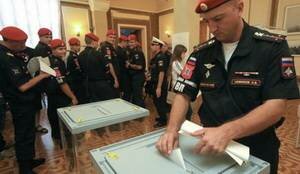 Elections to the State Duma of the Russian Federation, held in the occupied by Russia Crimea, showed preservation of weakness of Moscow's positions in the Peninsula. Thus, even according to official figures, only about 30 % of the local population participated in the elections, and that only thanks to massive administrative pressure on workers of the public sector, as well as the massive voting of military servicemen from the Russian occupation troops. All this once again proved that the “referendum” and “elections” organized by Russia in the Crimea in 2014, were completely and totally fraudulent.
Elections to the State Duma of the Russian Federation, held in the occupied by Russia Crimea, showed preservation of weakness of Moscow's positions in the Peninsula. Thus, even according to official figures, only about 30 % of the local population participated in the elections, and that only thanks to massive administrative pressure on workers of the public sector, as well as the massive voting of military servicemen from the Russian occupation troops. All this once again proved that the “referendum” and “elections” organized by Russia in the Crimea in 2014, were completely and totally fraudulent.
These circumstances cause extremely nervous reaction of V. Putin's regime, which takes additional measures to increase Russia's security forces in the Crimean Peninsula. In particular, in addition to the units and compounds of the Defence Ministry, Ministry of Internal Affairs, FSB and other special services, already stationed in the Crimea, in September this year a National Guards Brigade of the Russian Federation was deployed in the Peninsula (NG — a new power structure in Russia, formed earlier this year; its Commander in Chief is a former chief of Putin's personal security — V. Zolotov).
2.3. Other Aspects of the Russian Federation's Action against Ukraine and the West
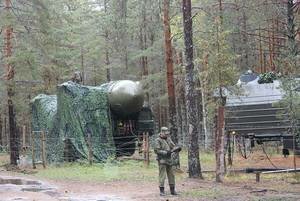 Against the background of the 71st session of the UN General Assembly, during which was confirmed the USA and EU countries' negative attitude to Russia's aggressive policy, V. Putin's regime continues demonstrating its military force to the West. In particular, September 20, 2016, under the leadership of the Commander of the Strategic Missile Forces, Colonel-General S. Karakaev, there began Command-Staff Exercise (CSE) of the 7th Guards Missile Division in Tver region of Russia — in the west of the country.
Against the background of the 71st session of the UN General Assembly, during which was confirmed the USA and EU countries' negative attitude to Russia's aggressive policy, V. Putin's regime continues demonstrating its military force to the West. In particular, September 20, 2016, under the leadership of the Commander of the Strategic Missile Forces, Colonel-General S. Karakaev, there began Command-Staff Exercise (CSE) of the 7th Guards Missile Division in Tver region of Russia — in the west of the country.
In the course of the exercises the 7th Guards Missile Division was mastering the procedure of putting on higher degrees of combat readiness, maneuvering of mobile missile systems on combat patrol routes, as well as countering sabotage groups and the enemy's strikes from precision weapons. Within the framework of inter-service cooperation, were widely used the front-line and army aviation to cover the Strategic Missile Forces.
According to the plan, the CSE’s were held jointly with combat duty of other formations and units of the Strategic Missile Forces — from Tver to Irkutsk regions. The exercises were conducted in the context of re-arming of the 7th Guards Missile Division with the new “Yars” missile systems.
September 22, 2016 (possibly within the framework of a single operational plan for the exercises of the 7th Guards Missile Division) two Tu-160 planes of the Long-Distance /strategic/ Aviation of the RF Armed Forces made a provocative flight along the coast of Norway to the North Sea. To accompany and intercept the Russian bombers, Typhoon fighters of the RAF of the United Kingdom were raised into the air. The previous flight of a pair of Tu-160s on the route took February 17, 2016.
III. Ukraine, International Organizations and Leading Western Countries
3.1. International Organizations
The European Union. Within the framework of the European Union, the process of ratification of the Association Agreement between Ukraine and the EU continues. September 22, 2016, the Parliament of the Netherlands passed a resolution making the government to consider the matter before November 1 of this year. However, none of the political forces in the Netherlands, even committed to Ukraine, fully supports the Association Agreement between Ukraine and the EU.
Against the background of a complicated and contradictory process of ratification of the Association Agreement between Ukraine and the EU, quite a positive factor for our country is the adoption by the European Commission of a new European Union's External Investment Plan. All in all, it provides for investing up to €44 billion into the economy of the EU's partners. A number of investment projects are planned to be implemented in Ukraine too.
3.2. Leading Western Countries
The USA. Washington's firm position on the “Ukrainian issue”, which was demonstrated during the 71st session of the UN General Assembly, was confirmed by the adoption by the House of Representatives of the US Congress on 22 September, 2016 of the bill H.R. 5094 “On Support for the Ukrainian Stability and Democracy”. The document says that sanctions against Russia will be extended until the complete and proven fulfillment of the Minsk Agreements. Besides, the bill includes a ban on USA's recognition of the Russian annexation of the Crimea. An important point of the document is that the list of means to support Ukraine — provided by the law and coordinated with allies and partners of the United States — includes lethal defensive weapons systems.
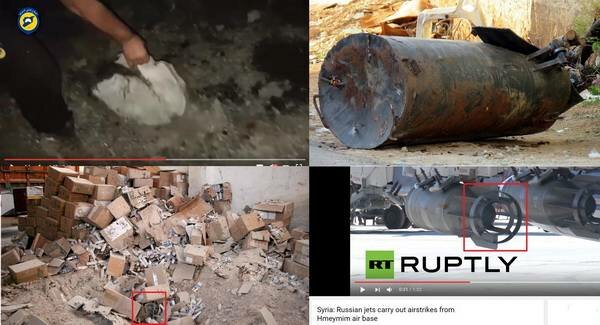 At the same time, the United States showed a firm position with regard to Russia and on the Syrian issue. Thus, the United States accused the Russian Federation of the air strikes on the humanitarian convoy in Syria on September 19, 2016, killing 20 Red Cross workers. With this in mind, the United States actually refused to fulfill the agreements with Russia on a truce in the Syrian territory. In response, Russia sent to the Mediterranean its heavy aircraft-carrying cruiser “Admiral Kuznetsov” (has on board new MiG-29K/KUB carrier-based fighters and Ka-52K helicopters), which should strengthen the group of ships of the Russian Navy near the coast of Syria. Today, this group already includes 6 warships and 4 service ships.
At the same time, the United States showed a firm position with regard to Russia and on the Syrian issue. Thus, the United States accused the Russian Federation of the air strikes on the humanitarian convoy in Syria on September 19, 2016, killing 20 Red Cross workers. With this in mind, the United States actually refused to fulfill the agreements with Russia on a truce in the Syrian territory. In response, Russia sent to the Mediterranean its heavy aircraft-carrying cruiser “Admiral Kuznetsov” (has on board new MiG-29K/KUB carrier-based fighters and Ka-52K helicopters), which should strengthen the group of ships of the Russian Navy near the coast of Syria. Today, this group already includes 6 warships and 4 service ships.
Taking into consideration Russia's openly aggressive anti-Western policy, on September 22, 2016, the Head of the Joint Committee of the Chiefs of Staff of the US Armed Forces General of Marines J. Dunford called Russia the greatest threat to the United States' national interests. According to him, the evidence of this is Moscow's unprecedented measures to build up and re-equip the Armed Forces of Russia, as well as the highest over the last 30 years intensification of military trainings. Separately were pointed out the Putin regime's using force to change the borders of other countries.
Taking into consideration the above-mentioned circumstances, as part of the adopted defense budget for 2017 fiscal year, the US Senate tripled spending on measures to counter Russia. Funds in the amount of 3.5 billion US dollars will be spent on the deployment of the USA and NATO's military units in Central and Eastern Europe.
However, a significant problem for the US leadership is the aggravation of pre-election struggle in the country which distracts Washington's attention from both Russia and Ukraine. In particular, in order to improve D. Trump's rating, his environment has used the facts of terrorist attacks in the USA on September 17-19, 2016 (one in the Chelsea district in Manhattan /New York/ and two in the State of New Jersey), as a result of which about 30 people were injured. On this basis, D. Trump accused B. Obama and H. Clinton of leading a “...too liberal immigration policy and failure to provide security in the country”. In early September 2016, after D. Trump's large-scale information campaign to discredit H. Clinton on the grounds of her illness, the ratings of the two US presidential candidates were almost equal.
Germany. Negative for Ukraine is the trend in the development of the situation in Germany to further weakening of the Christian Democratic Union (CDU) led by German Chancellor A. Merkel. Thus, according to the results of elections to the regional parliament in Berlin on September 18, 2016, the coalition of the CDU and the Social Democratic Party of Germany is no longer majority.
In turn, the number of MPs from the “left” and “Alternative for Germany” who are for lifting of sanctions against Russia, as well as for tightening of the migration regime in the EU, is growing. September 5, 2016, the “Alternative for Germany” took second place in the regional elections in Mecklenburg-Vorpommern, having gained more than 20 % of the vote. This trend poses a threat to Ukraine reducing the level of support from the Federal Republic of Germany.
IV. Other Important Trends and Developments Concerning Ukraine's National Interests.
The issue of “freezing” the conflict in the Donbas region is becoming increasingly important for Russia in the situation of further complication of the economic situation in the country under the influence of Western sanctions. In particular, the Deputy Finance Minister of the RF O. Lavrov confirmed the critical state of the situation with the financial reserves of the country. According to him, the reserve fund is virtually depleted and will be able to cover the country's needs only until 2017. Thus, according to official data of the RF Ministry of Finance, for the August 2016 alone the Reserve Fund decreased by 18 % — to 2.09 billion rubles and the National Welfare Fund — by 2.5 % — to 4.719 trillion rubles. At the same time, in the first half of this year, the deficit of the state budget of the Russian Federation amounted to 1.52 trillion rubles and over the whole year it is expected to be 2.3 trillion rubles.
At the same time, acceleration of decrease in real incomes of the Russian population continues. Thus, according to Rosstat, the figure in August 2016 was 8.3 % in annual terms, against July this year — 7.3 % in July, and 4.8 % in June. In general, in January-August 2016 incomes in real terms decreased by 5.8 % compared to the same period last year.
In the short term, in addition to Western sanctions, a new problem for Russia can become the American gas coming to the European market, which is planned for 2017. This will certainly help to reduce European gas prices, as well as create additional competition to the Russian “Gazprom” (which is already working at the limit of profitability). In turn, this will have positive consequences for Ukraine in terms of additional opportunities to buy gas in Europe, as well as to strengthen Ukraine's positions in its gas negotiations with Russia.
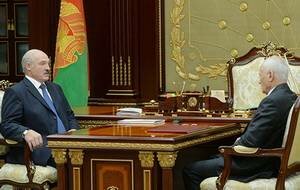 Against this background, there are new complications in the relations between Russia and Belarus — Russia's closest ally. Thus, on 19 September, 2016, President of Belarus O. Lukashenko accused Russia of its open pressure on his country, in particular on the determination of gas prices for Belarus. As examples of such pressure were mentioned Russia's reduction of volumes of oil supplies to Belarus, as well as the periodic closure of the Russian market for Belarusian goods. According to him, this was the cause of the Belarusian GDP falling by 3 % during the first half of the year.
Against this background, there are new complications in the relations between Russia and Belarus — Russia's closest ally. Thus, on 19 September, 2016, President of Belarus O. Lukashenko accused Russia of its open pressure on his country, in particular on the determination of gas prices for Belarus. As examples of such pressure were mentioned Russia's reduction of volumes of oil supplies to Belarus, as well as the periodic closure of the Russian market for Belarusian goods. According to him, this was the cause of the Belarusian GDP falling by 3 % during the first half of the year.
Taking into consideration the above-mentioned, O. Lukashenko expressed his intention to “streamline” Belarus' work in the Eurasian Economic Union (EAEC), taking into account the interests of Belarus. At the same time, he called on Russia to determine more clearly the priorities within the framework of the EAEC, and of the Union State of Belarus and the Russian Federation.
In general, the above-mentioned circumstances confirm the existence of deep-seated contradictions and problems in Russian-controlled integration structures in the post-Soviet space, which are used by Moscow exclusively in its own interests in terms of confrontation with the West. At this, Russia partners' interests are actually ignored by the Putin regime.
V. Main Trends in the Development of the Situation around Ukraine in the Future
5.1. Key Events and Trends that Will Be Most Important for Ukraine
In the nearest future, most important for Ukraine will be the decision of the leadership of the European Union on maintaining or extending sanctions against Russia. In particular, the decrease in the intensity of the fighting in the Donbas, as well as the signing of the framework agreement on the withdrawal of forces and arms of the parties in certain parts of the front line have already been regarded by the Minister of Foreign Affairs of Germany F. Steinmeier om as “...a demonstration of the movement towards the implementation of the Minsk Agreements”.
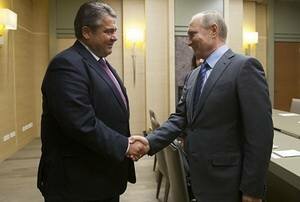 This can be used by Germany, France and other EU countries as a pretext for raising the question of easing sanctions against Russia. In particular, last week Vice-Chancellor, Minister of Economy of Germany Z. Gabriel visited Moscow and assured Putin of “...Germany's desire to restore close economic ties with Russia and its readiness for lifting of sanctions against the Russian Federation”. According to Z. Gabriel, “...sanctions may be weakened in the course of implementation of the Minsk Agreements”.
This can be used by Germany, France and other EU countries as a pretext for raising the question of easing sanctions against Russia. In particular, last week Vice-Chancellor, Minister of Economy of Germany Z. Gabriel visited Moscow and assured Putin of “...Germany's desire to restore close economic ties with Russia and its readiness for lifting of sanctions against the Russian Federation”. According to Z. Gabriel, “...sanctions may be weakened in the course of implementation of the Minsk Agreements”.
Moreover, Germany and France, and with their support — Russia — may increase pressure on Ukraine in order to force our State to synchronize political actions to resolve the conflict in the Donbas with the steps to strengthen security in the conflict zone. In particular, German Foreign Minister F. Steinmeier and Foreign Minister of France J. Hérault during a visit to Ukraine on 14 September, 2016 insisted on the need for exactly this approach and Kyiv's concessions.
In case of practical implementation of this plan, the conflict in the East of Ukraine will actually be “frozen” on the Russia Federation's terms, which is the main goal of the Putin regime. Later, after a possible change of government in the United States, Germany and France (and this is on what Moscow counts), will be raised the question of lifting the sanctions that were imposed against Russia after its occupation of the Crimea. At the same time Ukraine will remain essentially alone with Russia.
Possibility of a change of the EU countries' position with regard to Russia and Ukraine, has been confirmed also by US Vice-President G. Biden during the 71st session of the UN General Assembly. According to him, if Ukraine does not speed up political and economic reforms, “...at least five EU Member States may withdraw from the sanctions regime against the Russian Federation”.
5.2. Prospects for the Development of Events in the Conflict Zones in Ukraine
Given the critical importance to Russia of the decision on lifting Western sanctions against it, for some time, Moscow will refrain from excessive deterioration of the situation in the conflict zone in the Donbas. In this regard, V. Putin's regime will count on the possibility of the EU's revising the sanctions policy towards Russia in October 2016.
We should also expect the continuation of the provocative shelling of the positions of the ATO forces and peaceful settlements by Russian forces and armed groups of terrorists which will be accompanied by information activities with blaming Ukraine for “violating the ceasefire”. Besides, in some, most important for Russia areas, subversive-terrorist groups will continue their actions.
At the same time, given the poor discipline among the militants, we can't exclude a possibility of some of them going out from under Russia's control and of their independent firing at the ATO forces.
In the future, if the USA and the EU do not lift sanctions against Russia, Putin's regime may again intensify fighting in the Donbas to put pressure on Ukraine and its allies. Otherwise — Moscow will continue actions to “freeze” the conflict in the Donbas on its own terms.
Instead of Conclusions
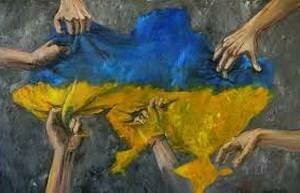 So, current situation around Ukraine is becoming more complex and contradictory. For example, there are signs of possible collusion between the Federal Republic of Germany, France and Russia to put joint pressure on Ukraine in order to force it to implement the Russian plan of “freezing” the conflict in the Donbas. In particular, the evidence of this is the conditions of the framework agreement concluded by the participants of the Trilateral Contact Group in Minsk on 21 September, 2016.
So, current situation around Ukraine is becoming more complex and contradictory. For example, there are signs of possible collusion between the Federal Republic of Germany, France and Russia to put joint pressure on Ukraine in order to force it to implement the Russian plan of “freezing” the conflict in the Donbas. In particular, the evidence of this is the conditions of the framework agreement concluded by the participants of the Trilateral Contact Group in Minsk on 21 September, 2016.
In fact, this agreement is the first step in the implementation of the plan, which provides for synchronization of Ukraine's political steps, determined by the Minsk Agreements, with measures to strengthen security in the Donbas. At this, the issue of withdrawal of Russian troops from the occupied territories of Ukraine and restoring our state's control over its eastern border, which are the main provisions of the Minsk Agreements, are not mentioned. Under this approach, Russia, Germany and France fully realize their interests, namely:
Russia — solves the problem of lifting of western sanctions while achieving its strategic goals in relation to our State, which include: blocking the possibility of Ukraine's accession to NATO and the European Union, disintegration of the country and returning it under Moscow's control. This is exactly what Russia will achieve through the formal return of the self-proclaimed republics into Ukraine with the Kremlin's actual control of them and maintaining the Russian military presence on their territory. At this, the Crimean issue is completely removed from the agenda;
Germany and France — will be able to demonstrate “foreign policy successes” in resolving the conflict in the East of Ukraine, as well as to restore economic ties with Russia, which is extremely important for both A. Merkel and F. Hollande before the elections in their countries. In particular, the representatives of Germany and France, have already raised the question of possible gradual lifting of sanctions against Russia as the situation in the Donbas stabilizes.
But this is completely contrary to the interests of Ukraine, which stands for the full implementation of the Minsk Agreements on the principle of possibility of the adoption and implementation of all political decisions (including on the elections in the Donbas, and determining the status of certain regions of Donetsk and Luhansk regions) only after securing peace in the zone of the conflict, withdrawal of Russian troops from the occupied territories and returning to Ukraine the control over its eastern border.
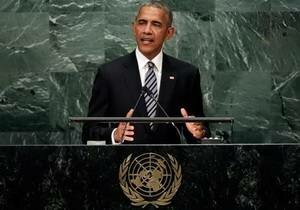 In this regard, the USA remains Ukraine's main reliable ally. In particular, the evidence of this was the speech of US President B. Obama during the 71st session of the UN General Assembly, where he accused Russia of carrying out neo-imperial policy, and the adoption by the House of Representatives of the US Congress on 22 September 2016 of the bill H.R. 5094 “On Support for Ukrainian Stability and Democracy” (among other things, provides for extension of sanctions against Russia and possibility of providing lethal weapons to Ukraine). Besides, the US Senate tripled military spending on measures to counter Russia — namely, the deployment of the USA and NATO's Armed Forces in Central and Eastern Europe.
In this regard, the USA remains Ukraine's main reliable ally. In particular, the evidence of this was the speech of US President B. Obama during the 71st session of the UN General Assembly, where he accused Russia of carrying out neo-imperial policy, and the adoption by the House of Representatives of the US Congress on 22 September 2016 of the bill H.R. 5094 “On Support for Ukrainian Stability and Democracy” (among other things, provides for extension of sanctions against Russia and possibility of providing lethal weapons to Ukraine). Besides, the US Senate tripled military spending on measures to counter Russia — namely, the deployment of the USA and NATO's Armed Forces in Central and Eastern Europe.
So, this leads to a further aggravation of confrontation between Russia and the United States, under which Russia continues to hold large-scale events to demonstrate its military force, including the use of nuclear weapons. At the same time, strengthening the positions of the “United Russia” ruling party on the results of the parliamentary elections held in the Russian Federation and in the occupied Crimea on 18 September 2016, has strengthened the abilities of Putin's regime to achieve its goals. In turn, a significant problem for the US leadership is the aggravation of the pre-election struggle in the country that diverts Washington's attention from both Russia and Ukraine.
In general, all this determines the development of the main military-political processes around Ukraine, which may face new challenges and threats to its national security in the nearest future.


